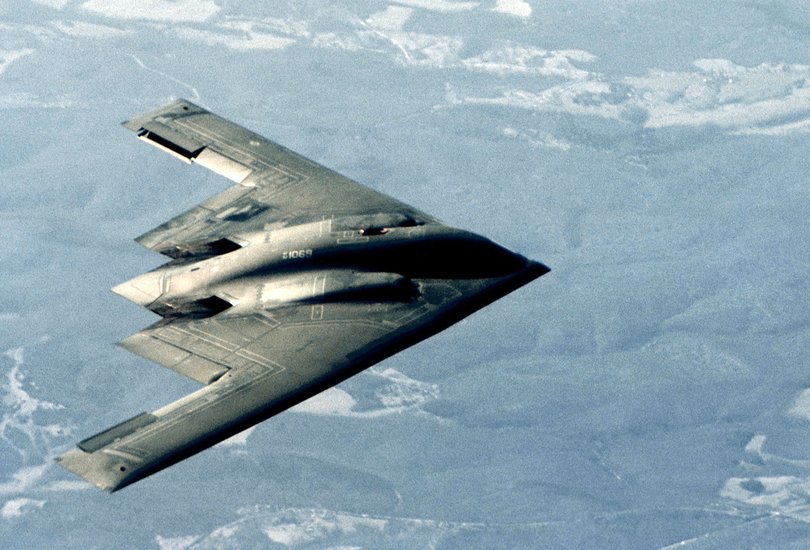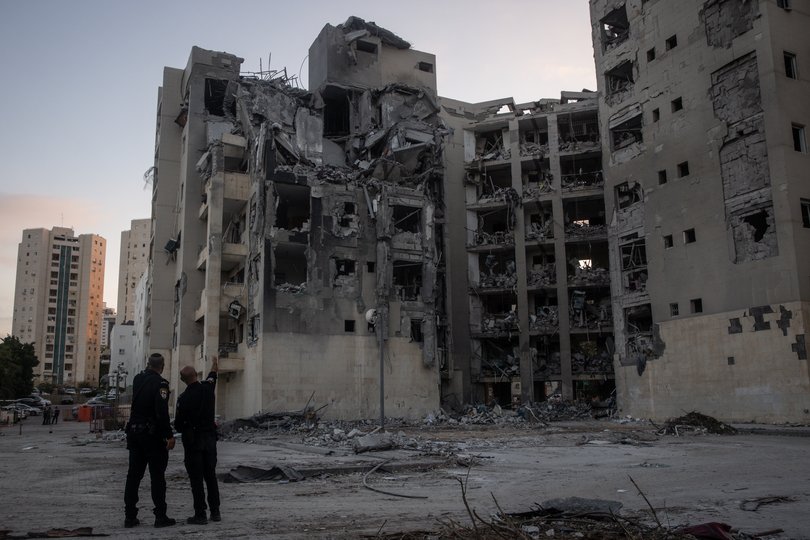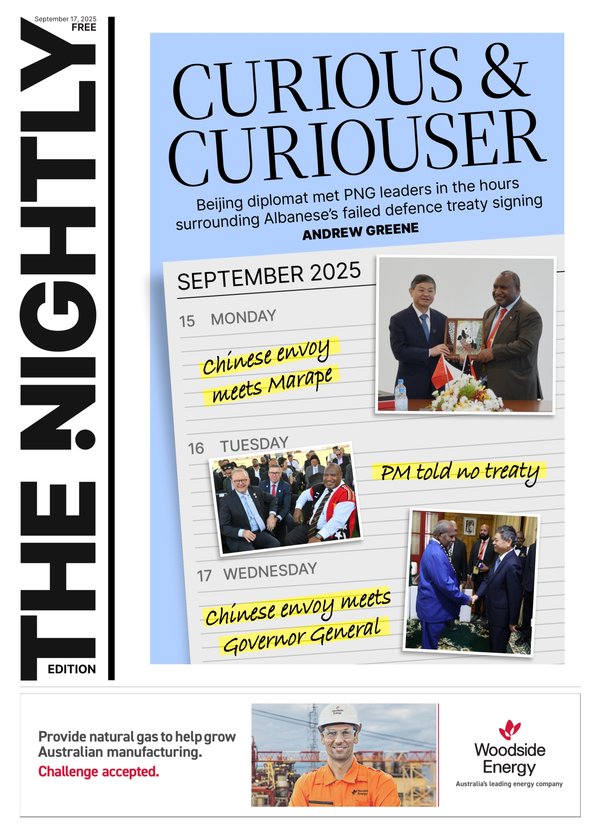ELLEN RANSLEY: Israel-Iran ceasefire deal appears to have held but experts warn peace is fragile
One hiccup aside, the fragile ceasefire deal brokered by Donald Trump appears to have held and the latest escalation of a decades-long conflict is over, but it’s almost inevitable the enduring conflict will flare again.
Israel, the US and Iran have all claimed to have emerged from the 12-day war as winners.
Tel Aviv and Washington say they had done what they set out to achieve: decimating Iran’s nuclear facilities. Mr Trump says they have been “obliterated”, while Israel says they have removed the “immediate” threat of nuclear weapon development.
Sign up to The Nightly's newsletters.
Get the first look at the digital newspaper, curated daily stories and breaking headlines delivered to your inbox.
By continuing you agree to our Terms and Privacy Policy.Tehran said they were victorious because Israel had “failed in achieving its sinister goals: the destruction of facilities, the dismantling of nuclear expertise, and the incitement of social unrest”.
The question now is what’s next. Competing claims about the status of Iran’s nuclear facilities, and how close Tehran was to building a weapon before this war began in the first place, add degrees of complexity.
Israel’s pre-emptive strikes on Iran almost two weeks ago were based on claims Tehran could have been just months away from producing a nuclear bomb. No such intelligence has been made public and the claims disputed.
According to a leaked intelligence report, cited by a number of US news outlets, America’s strikes on three Iranian nuclear facilities had not “completely obliterated” the sites as the President had claimed, and only set the program back a few months.
Mr Trump attacked the publications, and asserted again the Fordo, Natanz and Isfahan facilities were “completely destroyed” by the US at the weekend which were bombed by the US at the weekend.

He declared Iran will “never rebuild their nuclear facilities”, because the facilities had been “demolished”.
Middle East expert at Deakin University, Professor Shahram Akbarzadeh, said unless Israel and the US bombed Iran in a “perpetual war”, then the facilities could be repaired.
“One thing we know for certain is that Iran has the knowledge to develop a nuclear bomb if it chose to,” he told The Nightly.
If the United States is to prevent that from happening without further involving itself in foreign wars, then diplomacy remains its best hope.
Special envoy Steve Witkoff said the US and Iran were already in early discussions, both directly and through intermediaries, about resuming diplomatic nuclear talks.
“The conversations are promising. We’re hopeful. Now it’s time to sit down with the Iranians and get to a comprehensive peace deal,” he told Fox News.
European leaders have also expressed hope that the matter can be resolved without violence. But the decision by the US to enter the war could cast long shadows.
“Hardliners are now hardening their position and will be even more resolute that there should be no negotiations with the United States because they’re untrustworthy and unreliable,” Dr Akbarzadeh said.
“There is every incentive for Iran now to develop their own nuclear bomb. They see that as their only deterrent to protect the regime, and without it they’ll keep getting bombarded.”
Iranian President Masoud Pezeshkian, in a phone call with the leader of the UAE, said Iran was “ready to resolve issues at the negotiating table and within international frameworks”, again claiming Iran “has not and will not seek a nuclear weapon”.
The world will be watching closely to see what comes of Iran’s co-operation with the International Atomic Energy Agency.
Before the ceasefire was agreed to, there were reports on Monday that Iran’s parliament had approved a move to suspend Tehran’s cooperation with the nuclear watchdog.
As the missiles stopped, the IAEA called for Iran to resume cooperation with the watchdog, describing it as “key to a successful diplomatic agreement to finally resolve the dispute over Iran’s nuclear activities”.
Beyond the persistent nuclear conundrum, a more hardline Iran will also strengthen resolve from Israel that Tehran’s regime must be toppled.

After leaving the door ajar midway through the war, Mr Trump ultimately decided that fulfilling Israeli Prime MInister Benjamin Netanyahu’s long-held aim of enforcing regime change in Iran would be too costly and leave a horrible legacy. But that doesn’t mean the aspiration has disappeared.
“I don’t want it. I’d like to see everything calm down as quickly as possible. Regime change takes chaos and ideally, we don’t want to see so much chaos, so we’ll see how it does,” he said.
Nevertheless the goal persists in Israel, especially among far-right political corners.
That’s unlikely to have disappeared just because it’s not feasible at the moment.
Dr Akbarzadeh said that could mean the conflict witnessed this month “will be repeated ... perhaps in two to three years time”.
In the meantime, he said it will be Iranian people who suffer.
“It will mean a less tolerant regime for domestic dissent. Any opposition is going to be silenced, and that will be very hard for Iranian people. It will make it so much harder to criticise the government,” Dr Akbarzadeh said.

